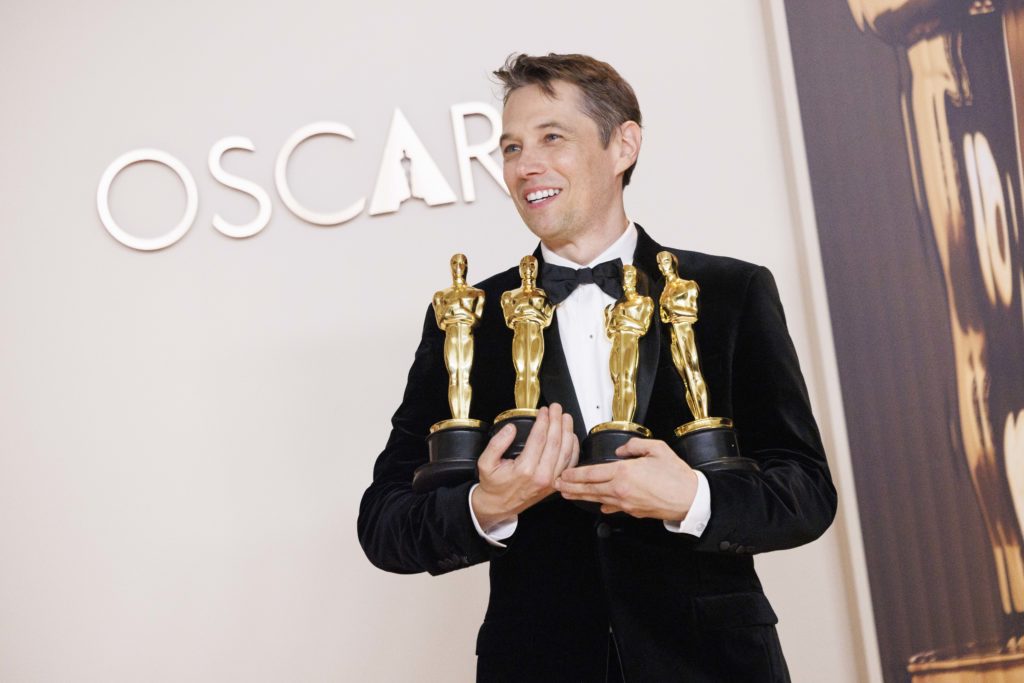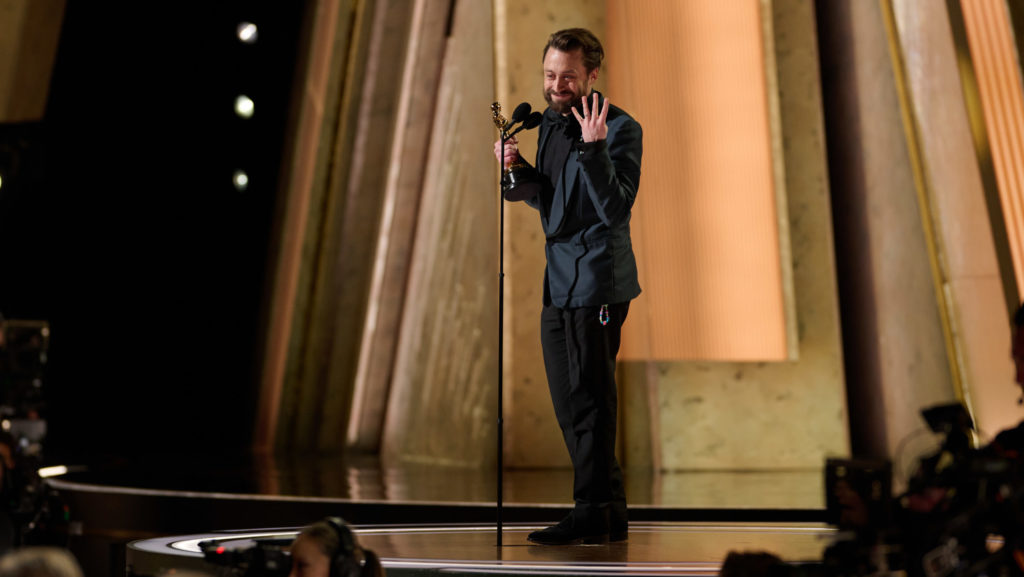What is the ultimate purpose of the Academy Awards?
Opinions are usually divided between two camps. The more romantic and/or freshly graduated believe it champions the art form of cinema, while the more cynical-minded think it a horse race cooked up by producers to pat themselves on the back. But whatever divides these two camps, they share something important: that they are lying to themselves.
In reality, what the Oscars are truly all about is the speech.
For two glorious minutes, an industry engineered to make you watch them is forced to watch you instead. Winners gaze out upon a sea of their peers and closest friends as they hiss obscenities through rictus smiles.
There is a timeless, even immutable ritual to the Oscar speech. You must first thank God, so to muddy the waters of whatever blood oath you made with Satan to get there. You then squander the opening half of your allotted time thanking a flurry of anonymous agents, managers, and other dark minions. The second half is spent glancing nervously to the orchestra pit, bows drawn and waiting for the first interesting sentence to play them off.
I consider myself a scholar on the subject, having watched most Academy Award broadcasts and daily rehearsing my own Oscar speech to the bathroom mirror. I believe this gives me the authority to rank the recent Oscar speeches to my own obscure metric, from least to most fulfilled.
6. Peter Straughan for Best Adapted Screenplay, “Conclave”
Befitting this category, this speech felt adapted from a thousand speeches before. Not quite befitting the source material, the speech was also as liturgically traditional as incense and altar rails. Straughan was gracious, thanked his management and his daughter, and was in and out like a demon’s whisper.
5. Mikey Madison for Best Actress, “Anora”
What could be mistaken for a gust of wind was actually the collective gasp of relief in the theater as Madison won over Karla Sofía Gascón. Gascón, who transitioned from man to woman and their foot into their mouth, was the frontrunner until a number of their older controversial tweets resurfaced. That speech would have been far too interesting, which is the last thing the Academy wants.
Madison provided the necessary corrective and was endearingly banal. Continents away from the brassy character that won her the Oscar, she nervously prattled through her thank yous in a way that reminded us she is only 25, which in turn reminded me how little I’ve accomplished in life. I did enjoy her line about how despite living in Los Angeles, Hollywood feels all the more distant despite the proximity. You and me both, sister.

4. Zoe Saldaña for Best Supporting Actress, “Emilia Perez”
As opposed to the rattled ingenue before her, Saldaña is 46 and has spent 20 more years in the fighting pits sharpening her teeth, waiting for her moment to bite. Having won most other awards this year and thus able to rehearse, her impeccably delivered speech focused mainly on her pride at being the first Dominican-American to win an Oscar. All good stuff, though I admit I was most moved at her bursting into tears upon spotting her mother in the crowd, the only really spontaneous gesture of her night.
3. Sean Baker for Best Original Screenplay/Director/Picture, “Anora”
Baker’s highly successful night gave him the luxury of three speeches, and he had a confidence bordering on arrogance as he turned them into something of a triptych. His first speech was dedicated to sex workers, a frequent subject of his films. Someone unfamiliar with his work might have mistook him for the rare Hollywood player honest about his peccadillos. His second, more admirable speech defended the theatrical experience, made more poignant by Netflix leading the nominations but taking home almost none of them.
He let his producers have their moment after winning Best Picture, but came in with a capstone championing independent film in general. Individually none of these stand alone, but all together you have to at least admire the exertion. I place him third, for each of his speeches.
2. Adrien Brody for Best Actor, “The Brutalist”
Brody had the most controversial speech of the night, which is just another way of saying the longest. In his defense, “The Brutalist” was the length of two films, so he deserves the length of two speeches. Brody thanked God, but with a gratitude that suggested true sincerity and no secret compact with Old Nick. He then mused on the rollercoaster arc of his career, the years in the direct-to-DVD wilderness since his last win some 22 years prior. It’s a wonderful speech that then persists for another four minutes.
He plays chicken with the orchestra and they back down first, leaving nothing but open field ahead of him to deliver the sort of platitudes that feel moralistic yet with no scrutable morals. I loved all six excruciating minutes of it. This is what the Oscars are all about, getting held hostage by a theater kid, cornered at a party you weren’t even invited to. This is why we play the game.
1. Kieran Culkin for Best Supporting Actor, “A Real Pain”
At least once every ceremony there is a speech that is well and truly good, and not merely for its class or my ironic amusement. Culkin has made his brand out of glib self-effacement, but it didn’t feel insincere here. If Brody thinks acting is his gift to the public, Culkin seems to think acting is his gift to his family.
In a speech directed almost entirely to his wife, he reminds her that after his pleading she agreed to a third child when he won an Emmy, and sarcastically promised a fourth only if he won an Oscar.
Days after being introduced to Elon Musk and his IVF harem, this felt like the truly positive natalism we needed. To see a man on the biggest stage of his career, the world watching, publicly exclaim not the necessity of children but the joy of them, felt radical in a way many Oscar speeches attempt and stumble upon dismount. It warmed this cold heart, and quite possibly nudged me into the romantic camp.

